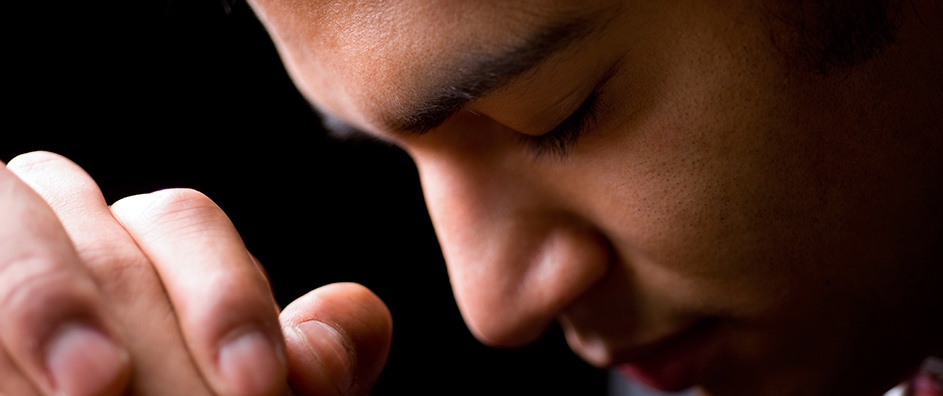The views expressed in our content reflect individual perspectives and do not represent the authoritative views of the Baha'i Faith.
“Do Baha’is pray?” a new friend of mine asked.
We had just finished a long, interesting conversation about God. An agnostic, she said she liked the Baha’i concept of God as an unknowable essence—but she had a hard time, she told me, with the idea of prayer, of addressing or asking for something from a God she couldn’t picture or imagine.
“Yes,” I told her, “Baha’is definitely pray.”
“Why?” she said. “And how?”
Those two truly profound and important questions, I thought, deserved considered, thoughtful answers. But we only had a few minutes left to talk, so rather than give her good questions a hasty response I did two things: I gave her a Baha’i prayer book and asked her to read through some of the prayers; and I decided to write this short series of essays on the meaning and the importance and the philosophy and the power of Baha’i prayer.
Do you remember the first time you prayed?
My own first introduction to prayer came at about three years old. My parents weren’t religious at all, but they had promised my grandparents that they’d raise me as a Lutheran, so they did their best. They started my spiritual education with a nightly bedtime prayer called “Now I Lay Me Down to Sleep:”
Now I lay me down to sleep,
I pray the Lord my soul to keep,
If I should die before I wake,
I pray the Lord my soul to take. Amen.
 At three years old I didn’t really pay attention to the words of the prayer, and I wasn’t sure who the Lord was, either, but I said the prayer with my mom every night when she tucked me into bed. It became a comforting ritual, a little moment of peace that I looked forward to each day.
At three years old I didn’t really pay attention to the words of the prayer, and I wasn’t sure who the Lord was, either, but I said the prayer with my mom every night when she tucked me into bed. It became a comforting ritual, a little moment of peace that I looked forward to each day.
It wasn’t until I was five or so that the prayer started to kind of creep me out. If I should die before I wake? Yikes! I’m only five—I don’t want to die!
For a small child just waking up to the reality of this temporary physical life, that’s a scary thought. And I had started to wonder about this Lord, who I’d been asking to take my soul. I became intensely confused and curious about this Lord in my prayer, so I asked my grandmother, “Can you tell me about God?”
She told me God was a very old man who lived in the clouds in heaven. He had a long white beard, she said, and he loved all children. He was very kind, although he could get quite angry, too. Every day he looked down from heaven at each child, and decided whether that boy or girl had been good that day. Then he put a checkmark in a huge book that listed all the world’s children, either in the “good” column or the “bad” column. At the end of your life, she told me, the Lord added up those checkmarks. If there were more bad ones than good ones, you couldn’t get into heaven.
(Later in life I began to suspect that my grandmother had customized this judgmental deity to reduce my boyish proclivities to misbehave.)
“But why do we pray to God?” I asked her.
“So God will hear your prayers and help you,” she said.
Obviously my dear grandmother, the sweetest and kindest woman I’d ever known, was no theologian. But her simple explanation helped me a little, and I began to try to visualize this powerful Lord, as kids will do. I stared up at the sky, hoping to catch a glimpse of him as the clouds floated by. I started praying in earnest, too, asking God to intervene in my life in various ways.
When he didn’t, by the time I was twelve or thirteen, I stopped believing in him. It seemed silly to continue to believe in something so imaginary.
Then, later in my teenage years, I met a few Baha’is. “I don’t really believe in God,” I told them.
My Baha’i friends asked me about my beliefs, and I described rejecting the God my grandmother told me about.
“Oh, don’t worry,” one of the Baha’is said. “We don’t believe in the same God you don’t believe in.”
I soon found out that Baha’is pray to an unknowable God; one that fits no physical description and exists far beyond any of our limited man-made mental conceptions. I learned that Baha’is don’t try to anthropomorphize God; that Baha’is pray and meditate daily; and the Baha’i teachings say God has given us a series of intermediaries to help us understand the infinite–prophets and messengers like Christ and Buddha and Moses and now Baha’u’llah, whose purpose involves carrying God’s love and wisdom to humanity. Someone gave me a Baha’i prayer book.
That’s how I first encountered the remarkable, moving Baha’i prayers, written by Baha’u’llah and Abdu’l-Baha in the pure language of the heart. The moment I began reading them I fell in love. They deeply touched my soul. The beauty of the words and symbols, the power of the imagery, the gorgeous mystical allusions carried me away, giving me the profound feeling of entering the majestic presence of something much greater than myself, of having a conversation between my spirit and the Creator.
I learned, once again, to pray:
…in this garden of God, lift up your voices and sing the blissful anthems of the spirit. Become ye as the birds who offer Him their thanks, and in the blossoming bowers of life chant ye such melodies as will dazzle the minds of those who know. – Abdu’l-Baha, Selections from the Writings of Abdu’l-Baha, p. 11.
If you’d like to discover more about Baha’i prayer, please follow along in this series of articles.
You May Also Like
Comments

















Now I lay me down to sleep
And hope for dreams of bliss.
I pray the Lord my soul to keep;
His wish may I not miss.
If I should die before I wake,
May He make loved ones glad.
I pray the Lord my soul to take
But let folks not be sad.